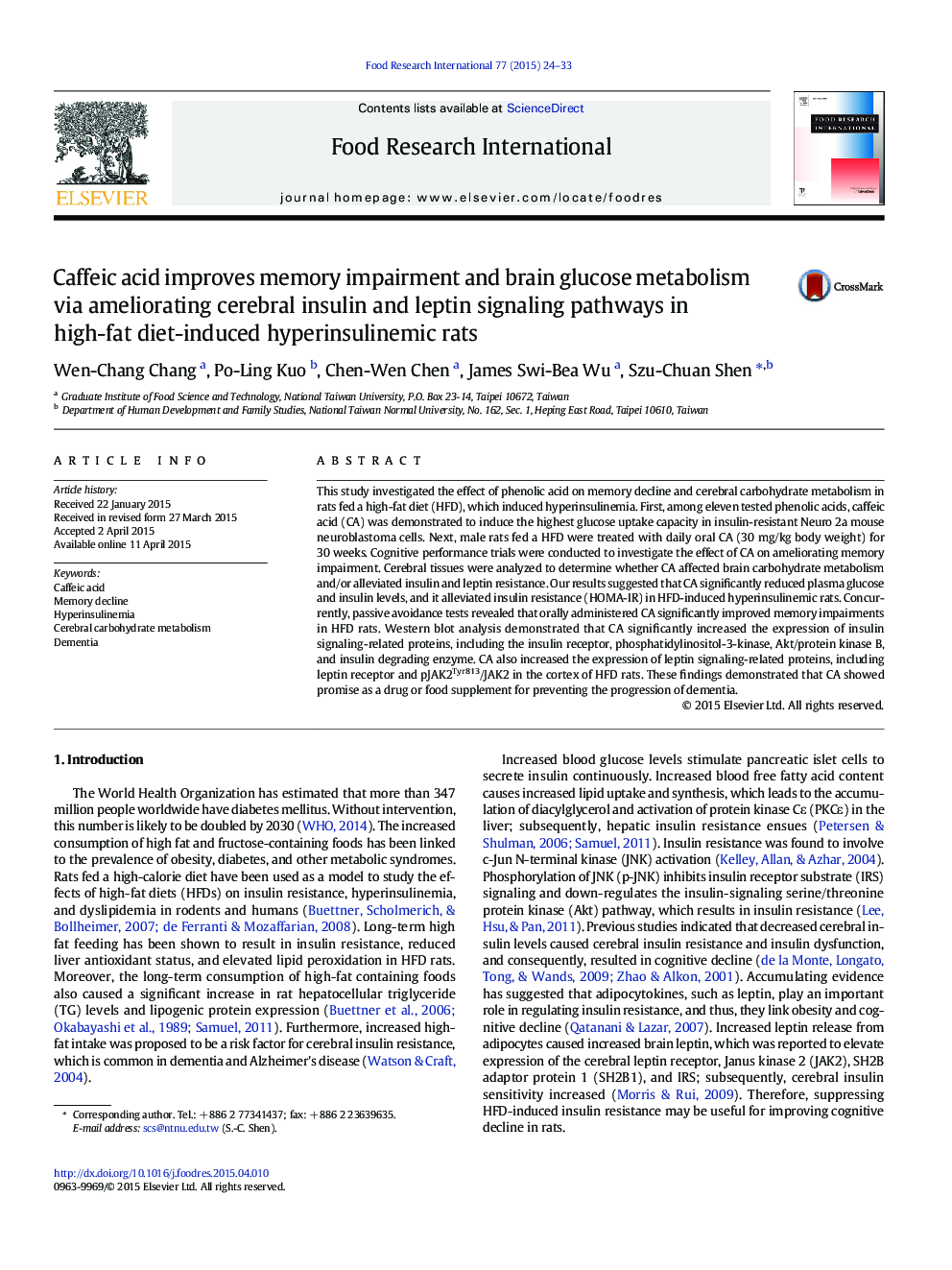| Article ID | Journal | Published Year | Pages | File Type |
|---|---|---|---|---|
| 4561496 | Food Research International | 2015 | 10 Pages |
•Effect of phenolic acids on memory decline and cerebral glucose metabolism in high fat diet (HFD)-fed rats was investigated.•Caffeic acid (CA) ameliorates glucose uptake in insulin-resistant Neuro 2a mouse neuroblastoma.•CA decreases serum glucose, insulin and leptin levels, and increases latency time of passive avoidance test in HFD rats.•CA upregulates the cerebral expression of insulin and leptin signaling-related proteins in HFD rats.•CA possesses therapeutical potential on preventing progression of HFD-related dementia.
This study investigated the effect of phenolic acid on memory decline and cerebral carbohydrate metabolism in rats fed a high-fat diet (HFD), which induced hyperinsulinemia. First, among eleven tested phenolic acids, caffeic acid (CA) was demonstrated to induce the highest glucose uptake capacity in insulin-resistant Neuro 2a mouse neuroblastoma cells. Next, male rats fed a HFD were treated with daily oral CA (30 mg/kg body weight) for 30 weeks. Cognitive performance trials were conducted to investigate the effect of CA on ameliorating memory impairment. Cerebral tissues were analyzed to determine whether CA affected brain carbohydrate metabolism and/or alleviated insulin and leptin resistance. Our results suggested that CA significantly reduced plasma glucose and insulin levels, and it alleviated insulin resistance (HOMA-IR) in HFD-induced hyperinsulinemic rats. Concurrently, passive avoidance tests revealed that orally administered CA significantly improved memory impairments in HFD rats. Western blot analysis demonstrated that CA significantly increased the expression of insulin signaling-related proteins, including the insulin receptor, phosphatidylinositol-3-kinase, Akt/protein kinase B, and insulin degrading enzyme. CA also increased the expression of leptin signaling-related proteins, including leptin receptor and pJAK2Tyr813/JAK2 in the cortex of HFD rats. These findings demonstrated that CA showed promise as a drug or food supplement for preventing the progression of dementia.
